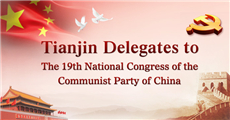A sharing lifestyle
It's not just companies and governments who are reacting, despite the popularity of the sharing economy there are also real problems. There have been horror stories about passengers being robbed and or killed by Uber drivers and trashed homes and property stolen by Airbnb guests. Car and aircraft sharing is very new, but it’s not hard to imagine the sorts of scenarios that could occur. It’s an industry still in its infancy, governments are slowly finding ways of regulating and taxing it and big business will find ways of competing with it. But it’s likely to stay, it fits with the mobile, social and flexible lifestyle that many, especially the Y generation, want.
Many peer-to-peer rental firms were founded between 2008 and 2010, in the aftermath of the global financial crisis. Some see sharing, with its mantra that "access trumps ownership", as a post-crisis antidote to materialism and overconsumption. It has environmental benefits, by making more efficient use of resources. But its main benefit, says Neal Gorenflo editor of online magazine "Sharable", is the desire to connect with the community. With peer to peer services, the software just provides an introduction and a means to communicate. It enables access between real characters and the real cultures rather than a brand, a computer system, a scripted or proceduralized customer interface. It’s a way out of the anodyne and corporate world that globalisation creates. As Bob says "I've learned things about my own neighbourhood through enthusiasts from other counties. We share resources, but more valuably, we share experiences."
Neil is based in San Francisco, home of both Airbnb and Uber. His magazine is a free publication "to inspire social change through the transformative power of sharing." The mission and values of the group read like an echo of the flower power counterculture of the 1960's. And like the hippy movement, which also grew out of San Francisco, the sharing economy is being presented as an alternative way of life; a way to solve global warming and poverty, rather than as a means to make a little cash.
For the majority of individuals though, the money is important. While you don't make much, there are few overheads and for the moment at least, what you do get is tax free. The movements proponents may talk up the environmental and the social advantages, but take away the monetary benefits and the sharers will be as mainstream as swingers. Sharing is fine for the stuff you’re not using, but my bet is, like sharing love, sharing your profit is as desirable for sharers, as it is for the ‘failing industrial-age institutions' they claim are outdated.

 Daily life
Daily life




